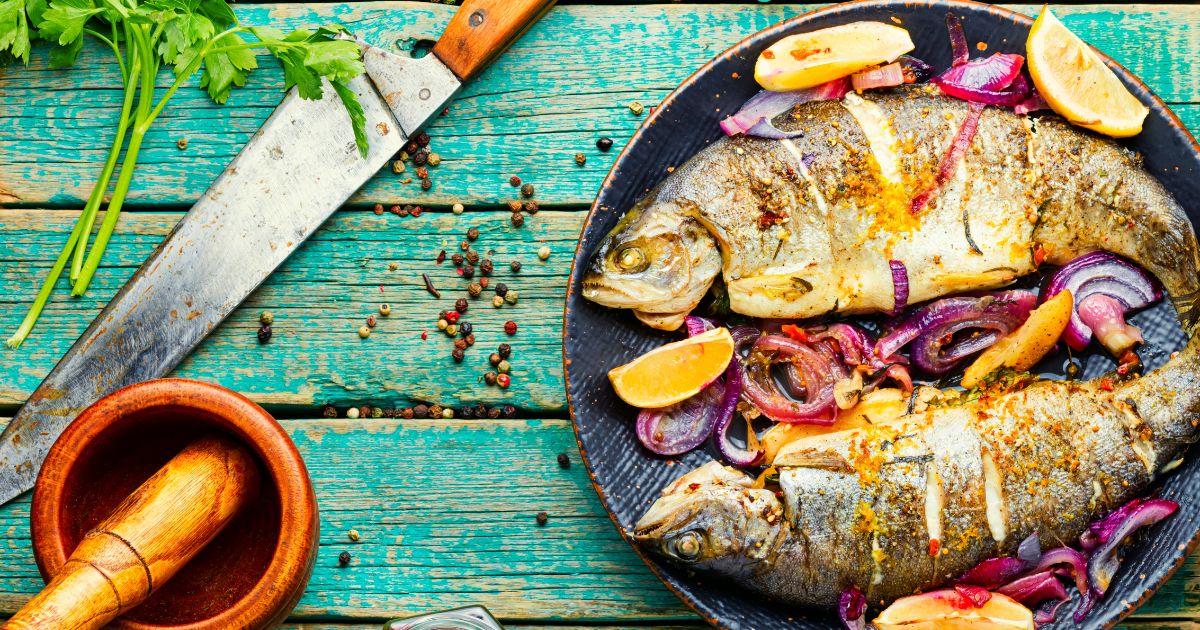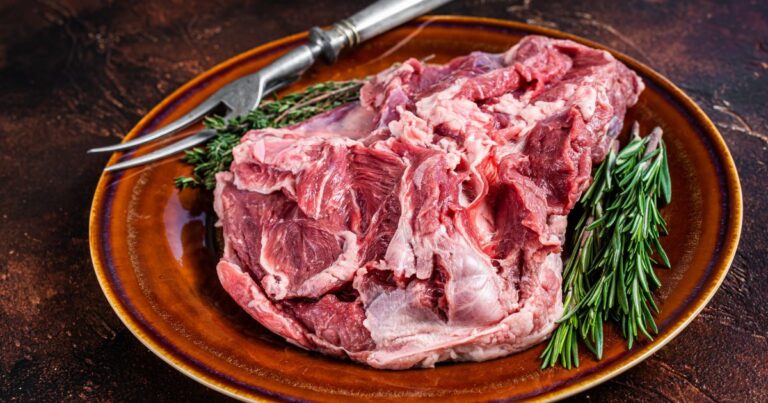The Meanings Behind Fish Cravings: Why Do I Crave Fish?
You are here with me to unravel each of the seven mind-blowing reasons for your Fish Cravings. A scientific and personal perspective on why fish can be such a craved food item served on a silver platter. Whether you’re someone who frequently finds their stomachs growling for a seafood meal or just curious about the fish craving phenomenon, this exploration sheds light on the intricate relationship between our body, mind, and the food we crave.
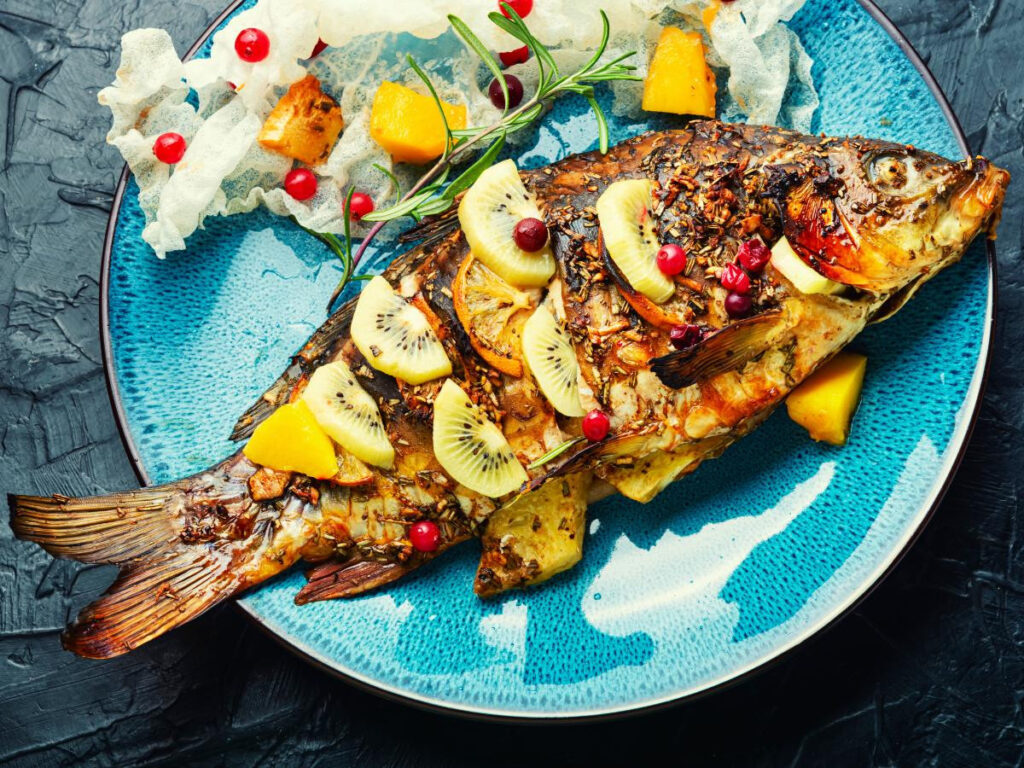
Food Cravings That Tell Us To Eat Fish Now
Fish stands out as a versatile ingredient and a source of fascination due to the unique cravings it inspires in many people, including myself.
Food Cravings can be a crazy thing in general but people often experience specific cravings for fish, which are not just random whims but can be deeply rooted in various physical, psychological, and cultural factors.
Why am I Craving Fish? We often yearn for a piece of succulent salmon, a tender tuna steak, or a comforting bowl of fish soup for seven reasons. Fish is not just a culinary delight; it’s a complex interplay of taste, nutrition, and emotional satisfaction.
Table of Contents
Key Takeaways: Why Am I Craving Fish?
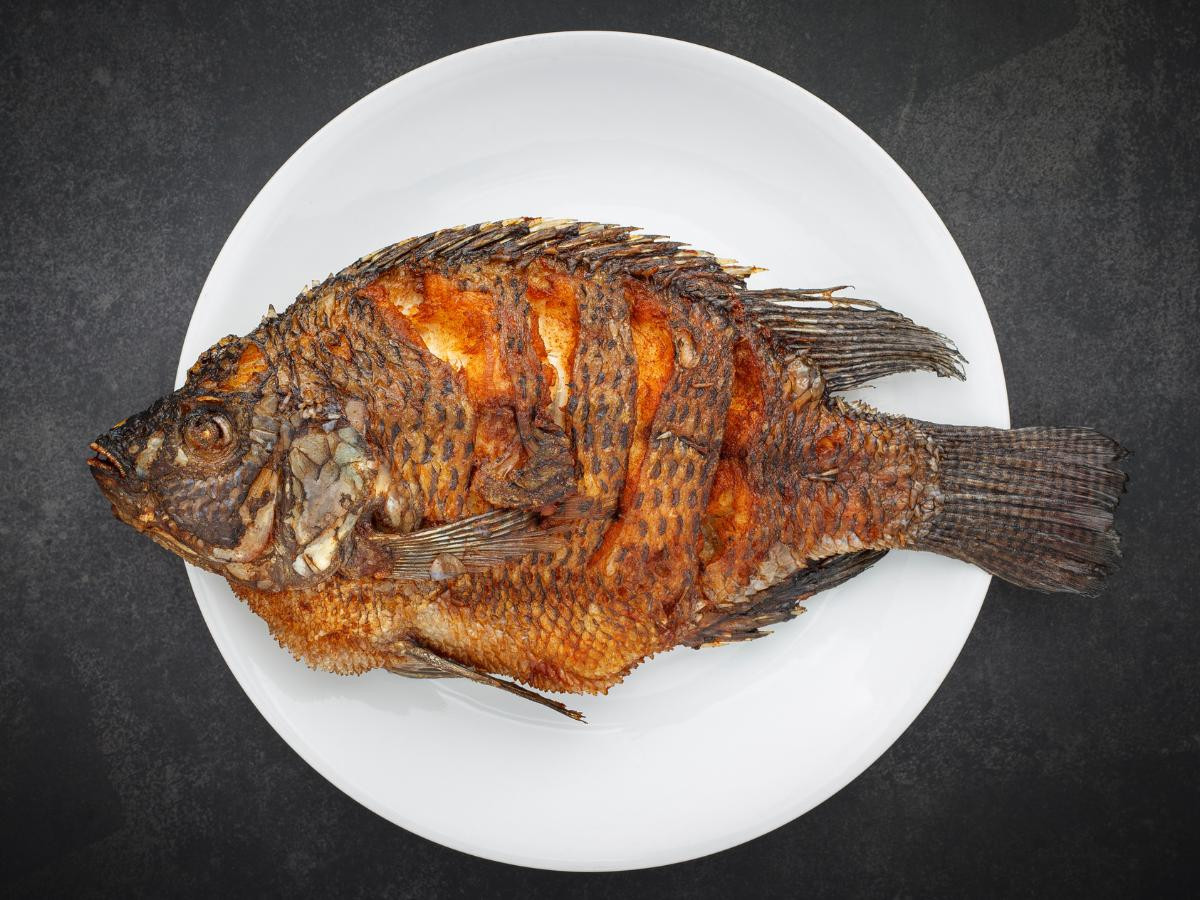
From the perspective of a chef and a healthy food culinary enthusiast, I’ve identified seven key reasons that might explain why fish becomes the object of our food desires.
Nutritional Deficiency: The healthy fats in Fish, a powerhouse of omega-3 fatty acids, vitamins, and minerals, might be your body’s way of hinting at certain nutritional deficiencies.
Cultural and Culinary Influences: Our food preferences are often shaped by our cultural background and the types of cuisine we’re exposed to. For some, craving fish directly reflects their culinary heritage and upbringing.
Psychological and Emotional Connections: Comfort food is a natural phenomenon, and for many, the emotional nourishment in fish dishes holds a special place in their heart, reminding them of home, family gatherings, or particular life events.
Health and Diet Trends: With the growing trend towards healthier eating habits, fish has gained popularity as a leaner protein source, leading many health-conscious individuals to crave it more.
Sensory Appeal: How it’s cooked – grilled, baked, steamed – plays a role in these fish cravings.
Craving Fish Before a Period: Some women crave fish before their menstrual cycle. This could be linked to the body’s need for more nutrients like essential polyunsaturated fats and iron during this time.
Craving Fish While Pregnant: Constantly Craving fish during pregnancy can be seen as a natural inclination towards foods rich in essential nutrients for both the mother and the developing baby.
The Nutritional Aspect of Fish Cravings
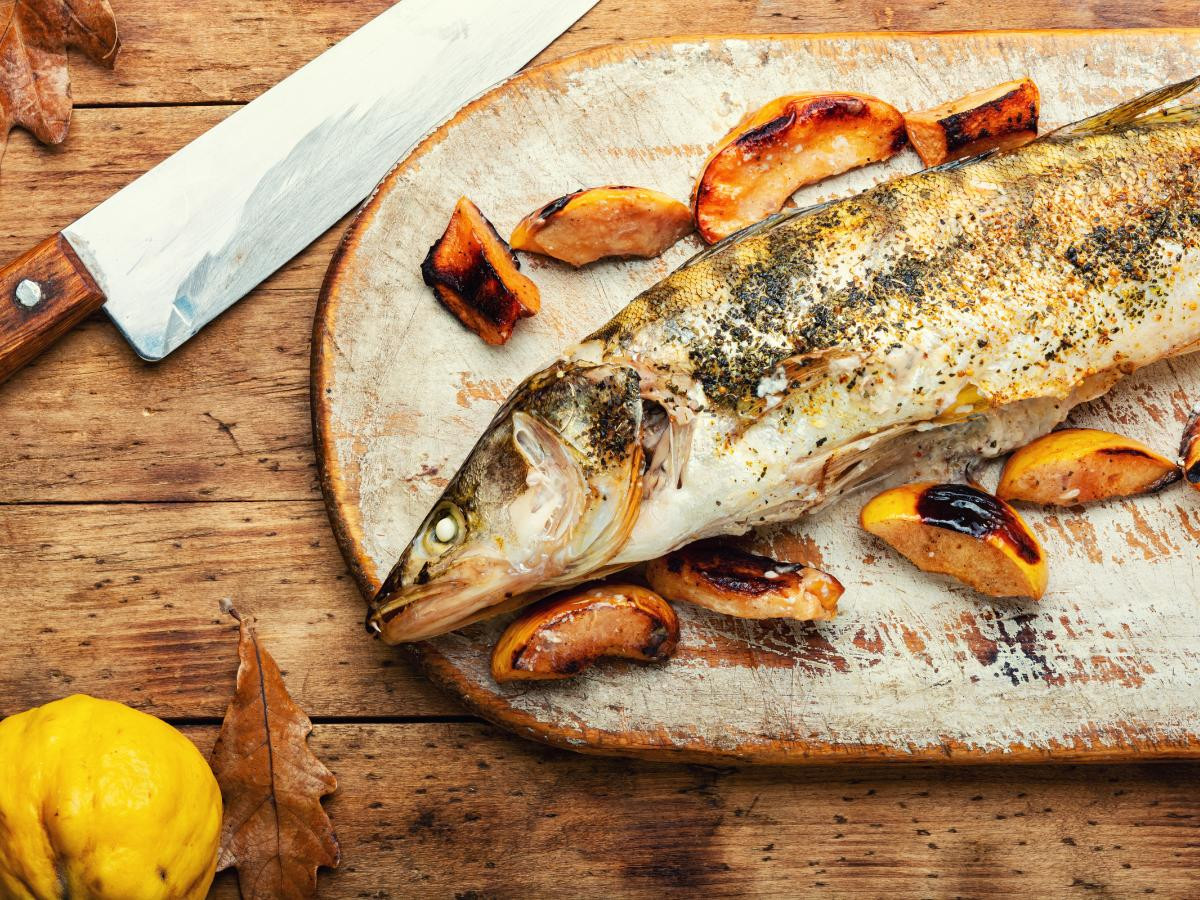
I’ve always been intrigued by the “why” behind our food choices. Sure, taste is a significant factor, but when it comes to craving fish, there’s more happening under the surface, nutritionally speaking.
Omega-3 Fatty Acids: The Brain’s Best Friend
First and foremost, let’s talk about omega-3 essential fatty acids. These are the celebrities of the nutrient world, and for good reason.
It is found abundantly in raw fish, especially oily kinds like salmon, mackerel, and omega-3s.
They help keep your mind sharp and your mood balanced and are rumored to play hardball against inflammation.
Protein: The Building Blocks of… Well, You
Fish is also a fantastic source of lean protein. Whether you’re a gym enthusiast or trying to stay on top of your health game, fish is your ally.
It’s the kind of protein that builds you up without too much fish baggage of saturated fats that often come with red meats. Your muscles will thank you, and let’s be honest, so will your taste buds.
Vitamin D and B2: The Unsung Heroes
Now, onto the vitamins. Vitamin D, the sunshine vitamin, isn’t just for basking in the sun. It’s crucial for bone health and immunity, and guess what? Fish is a great natural source.
Then there’s vitamin B2 (riboflavin), which plays a crucial role in energy production.
Minerals: A Treasure Trove in Every Bite
Fish is also teeming with iron, zinc, iodine, magnesium, and potassium.
This isn’t just a random lineup; these minerals are vital for keeping your blood healthy and ensuring your thyroid gland functions like a well-oiled machine.
Culinary Influences: The Global Language of Fish
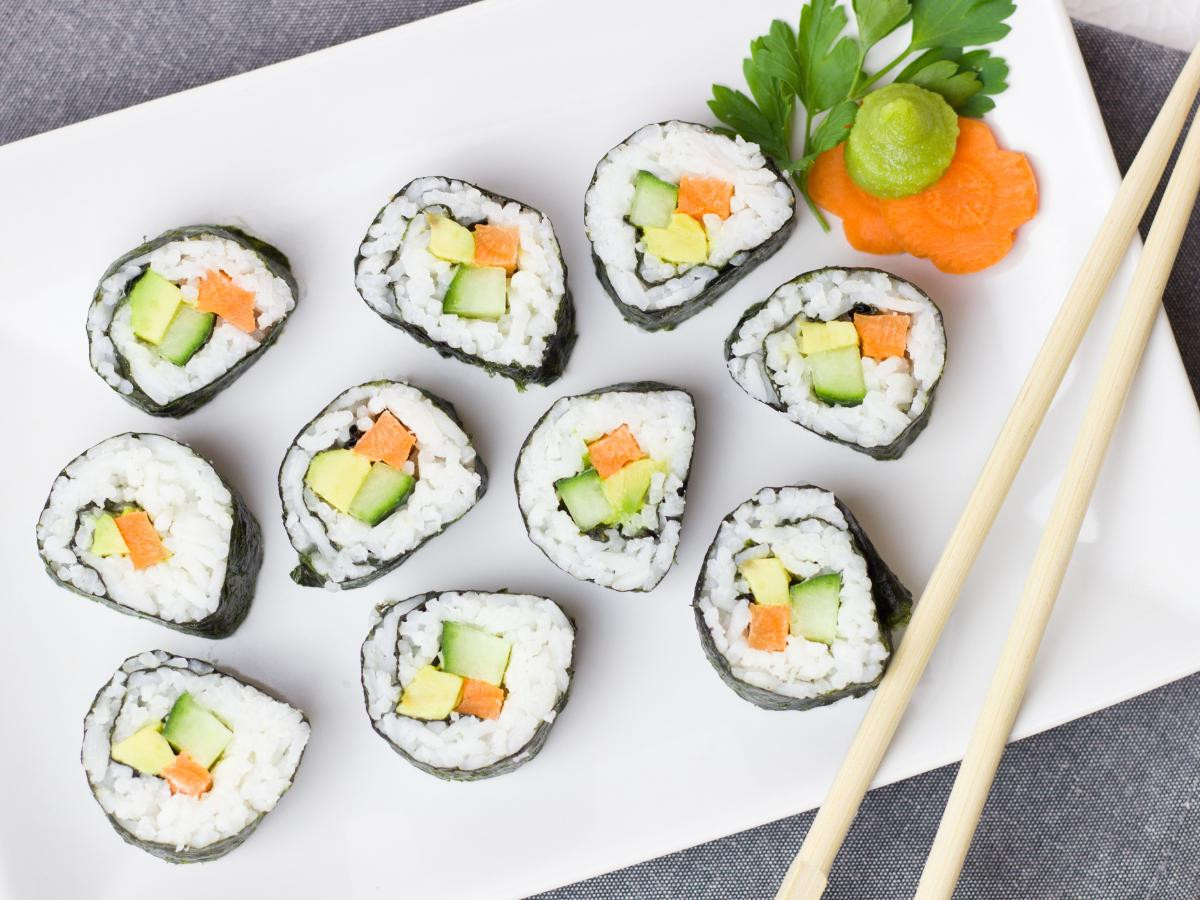
In the world of cooking, fish is like an artist’s canvas – it takes on the character of the culture and the methods used to prepare it.
This versatility makes fish a culinary delight and a cultural phenomenon.
It’s beautiful how the cultural preferences, flavors, textures, and cooking methods influence our fish addiction
Cultural Preferences: A World of Fish
Every culture has its signature fish dish, and these dishes often carry the essence of that culture’s culinary identity.
Think about it – the Japanese art of sushi, the classic British fish and chips, the spicy Indian fish curries, or the Mediterranean’s grilled sea bass.
Each dish tells a story of traditions, local ingredients, and communal eating habits.
So, if you’re craving sushi, it can sometimes be a subconscious pull towards these cultural experiences.
Flavor and Texture: A Symphony in the Mouth
The flavor profile ranges from the mild and delicate white fish to the rich and full-flavored oily fish.
This spectrum of taste caters to a wide array of palates. Whether you crave the buttery taste of salmon or the subtle sweetness of cod, there’s a fish out there for everyone.
And let’s remember texture. From the flaky tenderness of a perfectly baked snapper to the firm, meaty bite of tuna steak, the texture of fish plays a huge role in its appeal.
Cooking Methods: Transforming Flavors
How fish is cooked can turn a simple craving into an irresistible urge.
Each cooking method – grilling, frying, steaming – brings out different flavors and textures, making the same fish taste entirely different.
Grilled Fish: The smoky flavor from grilling can transform a fish fillet into a rustic, hearty meal. It’s perfect for those who crave something savory and robust.
Fried Fish: Who can resist fried fish’s golden, crispy exterior? It’s a guilty pleasure for many and a comfort food for the soul.
Steamed Fish: Steaming preserves the fish’s natural flavor and moisture, making it a go-to for those who crave something light and delicate.
Psychological and Emotional Factors: The Comfort and Joy of Fish

Ah, the world of flavors and emotions – it’s a complex and beautiful dance, right?
When we talk about craving fish, it’s not just our bodies we need to listen to, but also our hearts and minds. A whole psychological and emotional ocean influences our overall fish craving.
Let’s start with comfort food. We all have those dishes that transport us back to a happy place or time. For many, craving fish dishes are like a culinary time machine.
Maybe it’s the fish pie that grandma used to make, the first sushi date with your significant other, or perhaps the fish tacos from that unforgettable beach vacation.
These aren’t just meals; they’re memory capsules. Every bite is a trip down memory lane, wrapped in flavors and emotions.
Mood Improvement: A Natural Elixir
Now, let’s talk about mood. There’s science behind the idea that what we eat affects how we feel. With its omega-3 fatty acids, fish isn’t just food for brain health.
These fatty acids significantly regulate neurotransmitters like serotonin and dopamine, the body’s natural mood stabilizers. Think of them as nature’s happy pills, minus the side effects and add some health benefits.
Sensory Experience: A Feast for the Senses
The aroma of fish cooking – grilling, baking, or stewing – can be incredibly enticing. And when it comes to taste, fish offers a unique flavor profile that’s both delicate and distinctive.
The texture, the juiciness, the way the flavors unfold with each bite.
Health and Diet Trends: Riding the Fish Wave
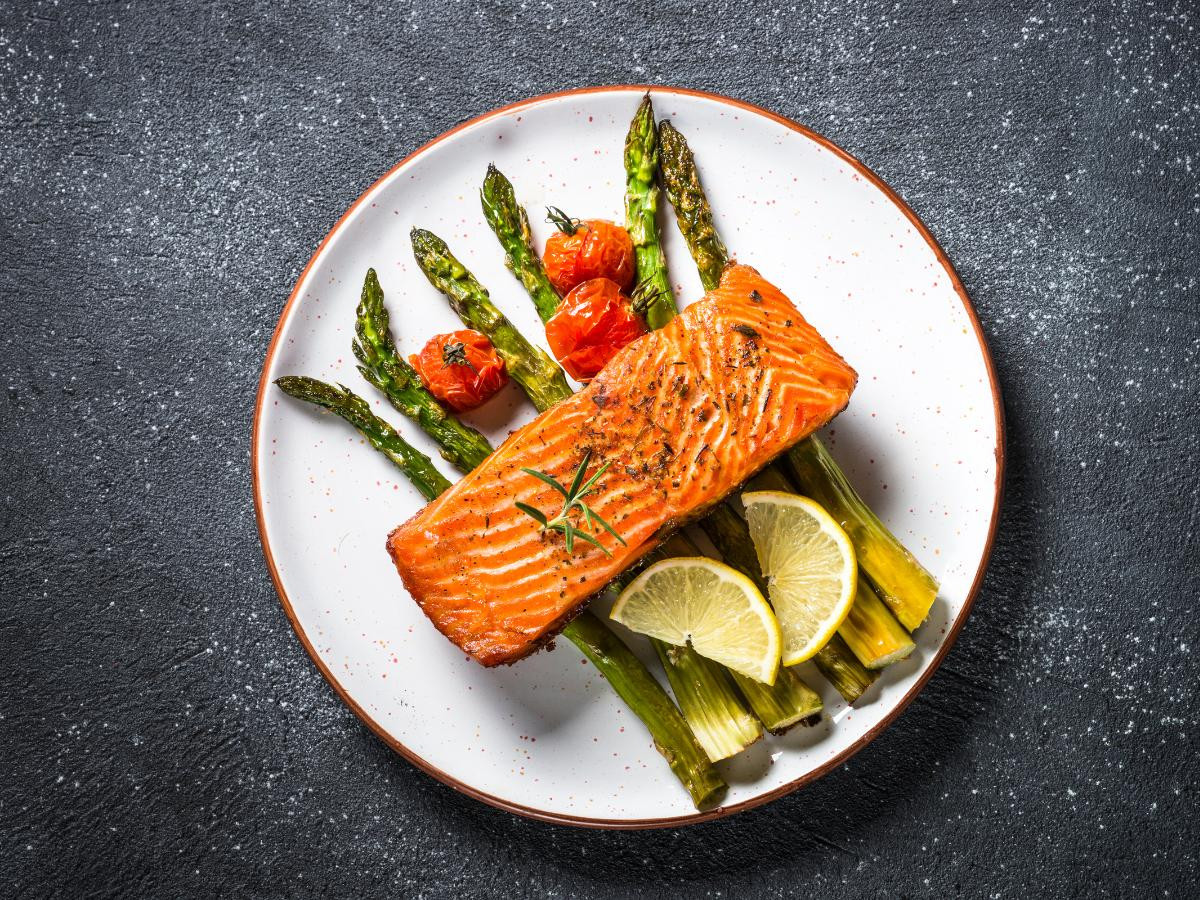
In the ever-evolving landscape of health and diet trends, fish has emerged as a shining star. It’s not just a culinary choice anymore; it’s a health statement.
As we become more conscious of what we put on our plates,craving fish is often seen as a beacon of health and wellness.
Health Consciousness: The Lean Protein Champion
There’s been a significant shift towards healthier eating habits in recent years, and craving seafood has been at the forefront of this movement.
It’s no secret that red meat, while delicious, has had its share of health controversies, from high saturated fat content to links with certain thyroid hormones and health conditions. Enter fish, the leaner, meaner protein source.
Rich in omega-3 fatty acids, low in unhealthy fats, and packed with essential nutrients, fish is often touted as the healthier alternative to red meat.
It’s not just about what’s missing (the saturated fats), but what’s there – a complete protein, vitamins, and minerals that support a healthy lifestyle.
Dietary Restrictions: A Pescatarian’s Delight
For those who’ve chosen to exclude meat but still embrace seafood, fish is not just an option; it’s the main event. It’s a versatile and satisfying source of protein that fits perfectly into their balanced diet.
But it’s not just pescatarians. Even those trying to reduce their meat intake often crave seafood as a satisfying alternative. It allows for dietary diversity without the heaviness or health concerns that sometimes come with meat consumption.
A vegetarian craving fish but is tired of just a pile of dark leafy greens for every meal. Let’s not forget the environmental angle – many people choose fish over meat as a more sustainable and eco-friendly option.
Environmental and Ethical Considerations: The Conscious Craving

In today’s world, where the impact of our food choices on the environment is increasingly coming into focus, the craving for fish takes on new dimensions.
It’s not just about taste or healthy food anymore; it’s about being environmentally conscious and ethically aware.
Sustainability: A Responsible Appetite
When we talk about craving fish in the context of sustainability, it becomes a conversation about the future of our oceans and aquatic life.
Sustainable fishing practices ensure our fish cravings don’t lead to depleted seas.
As a chef, I’ve seen a growing awareness among consumers about where their fish comes from. Is it farmed or wild-caught? Was it harvested in a way that supports the health of the ocean ecosystem?
Sustainable seafood is about satisfying our cravings without compromising the health of our planet’s waters.
It’s about choosing fish sourced from fisheries and farms with responsible practices. This can mean opting for abundant and abundant species harvested in environmentally friendly ways or supporting local fisheries that adhere to sustainable practices.
Ethical Choices: Beyond Just Taste
For many, turning to fish is a conscious decision to avoid the ethical dilemmas associated with industrial meat farming, such as animal welfare and the environmental impact of livestock production.
This doesn’t mean that fish consumption is without its ethical considerations. There’s a growing dialogue about the welfare of farmed fish and the impact of fishing on marine biodiversity.
However, fish can represent a more ethical alternative for those mindful of their food’s origin, mainly when sourced from responsible fisheries and farms.
Is Craving Fish a Sign of Pregnancy?

Just because you can’t stop craving fish is not a sign of pregnancy. Pregnancy cravings can be highly varied and are unique to each individual.
While some pregnant women might crave fish, others might crave completely different foods.
Changes often influence cravings during pregnancy in hormones, nutritional needs, and sensory sensitivities, but they are not reliable indicators of pregnancy.
It’s important to note that pregnancy is typically indicated by more specific symptoms, such as missed periods, nausea (often referred to as morning sickness), fatigue, and changes in breast sensitivity.
If you suspect you might be pregnant, the most reliable way to confirm it is through a pregnancy test, which detects the hormone hCG (human chorionic gonadotropin) in your urine. This hormone is only present if you are pregnant.
Conclusion Summary
These cravings are a complex mix of nutritional needs, cultural backgrounds, emotional states, and environmental awareness.
Nutritionally, fish is a powerhouse of omega-3 fatty acids, proteins, and essential vitamins, addressing both physical and mental health needs. Culturally, it connects us to our heritage and cherished memories.
Emotionally, it’s a mood enhancer, providing comfort during stress or hormonal changes, like premenstrual or pregnancy periods.
Health trends also play a role, with fish being a preferred choice for many health-conscious people and its selection reflecting our commitment to sustainable and ethical eating practices.
Understanding these cravings can offer insights into our body’s needs, emotional well-being, and connection to our environment and culture.
So, next time you crave fish, consider what it might be signaling beyond just taste. Is it a nutritional need, a nostalgic yearning, an emotional comfort, or a conscious health choice?
Our food cravings, particularly for something as rich and varied as fish, can be a mirror reflecting our deeper needs and connections. What might your fish craving tell you about your body and mind?
FAQ and Additional Information
Is Seafood a Pregnancy Craving?
Yes, fish can be a craving during pregnancy. Pregnancy cravings are pretty common and can vary widely among individuals, with some women craving sweet, salty, sour, or even spicy foods. Craving more fish during pregnancy can be attributed to several factors:
Nutritional Needs: Pregnancy significantly increases dietary demands. Fish is an excellent source of high-quality protein, omega-3 fatty acids, and other essential nutrients like iodine and vitamin D, which are necessary for the baby’s development, particularly for brain and eye development. Your body might crave fish to fulfill these increased nutritional needs.
Omega-3 Fatty Acids: The demand for omega-3 fatty acids, particularly DHA (docosahexaenoic acid), increases during pregnancy. These are crucial for the development of the baby’s brain and retina. Fish is one of the best dietary sources of omega-3s, which might explain its cravings.
Taste and Sensory Changes: Pregnancy can cause changes in taste and smell sensitivities. During pregnancy, some women may find themselves more attracted to the taste and smell of certain foods, including fish.
Health-Conscious Choices: Pregnant women are often more conscious of their dietary choices, understanding their diet’s impact on their baby’s health and development. This awareness might lead to craving healthier extra food options like fish.
Emotional and Psychological Factors: Most Cravings can also be influenced by emotional and psychological factors. If a woman perceives fish as a comforting or satisfying food, she might crave it during pregnancy’s emotional ups and downs.
However, it’s important to note that while fish can be a healthy choice, pregnant women should be selective about the types of fish they eat. Some fish can contain high levels of mercury, which can harm the developing baby.
Generally, avoiding large, predatory sea creatures like shark, swordfish, king mackerel, and tilefish is advised, and opt for lower-mercury options like salmon, sardines, trout, and anchovies. It’s also recommended to consume cooked rather than raw fish during pregnancy to avoid the risk of foodborne illnesses.
Why do I Crave Fish before my Period?
Craving fish before your period is a fascinating phenomenon attributed to a combination of nutritional needs and hormonal changes your body goes through during the menstrual cycle. Here are a few possible reasons why you might find yourself longing for fish during this time:
Nutritional Needs: During your menstrual cycle, your body undergoes significant hormonal fluctuations, impacting your dietary requirements. Fish is a rich source of omega-3 fatty acids, iron, and B vitamins, all essential for your body during your period. Omega-3s help in managing inflammation and can alleviate some menstrual discomfort. Iron is crucial because many women experience a drop in iron levels due to blood loss during menstruation. B vitamins, particularly B6, can help manage symptoms of PMS and nutrient deficiencies.
Mood Regulation: Hormonal changes during the menstrual cycle can also affect your mood. Omega-3 fatty acids found in fish are known to affect mood regulation. They are involved in the functioning of neurotransmitters in the brain, such as serotonin and dopamine, which are often termed ‘feel-good’ chemicals. Eating fish might be your body’s natural way of boosting your mood and combat the emotional ups and downs often accompanying periods.
Cravings for Healthier Foods: Some women experience an increased appetite or specific food cravings during their menstrual cycle. While it’s common to crave high-sugar or high-fat foods, craving fish could be your body’s way of directing you toward a healthier choice. Fish provides a satisfying and nutrient-rich option to fulfill these increased hunger needs without the downsides of less healthy cravings.
Physical Comfort: For some, the craving might also be linked to the comfort and satisfaction of eating fish. If fish dishes are something you associate with comfort or well-being, your body might naturally crave these foods during times of physical discomfort, like menstruation.
It’s important to note that while these are common explanations, cravings can be highly individual. Listening to your body and providing it with the proper nutrients it needs, especially when you are at risk of a nutrient deficiency, is crucial for overall health and well-being.
If you find yourself craving fish before your period, it could signal your body’s need for certain nutrients and comfort.
Why do I feel the need to Eat Fish?
Why am I craving Fish? You may need to eat fish due to its rich nutritional content (like omega-3 fatty acids, protein, and vitamins), emotional connections (such as comfort or nostalgia), cultural influences, or a healthier dietary choice influenced by personal health and wellness goals.
Is it Safe To Eat Fish While Pregnant?
Yes, it is generally safe to eat fish during pregnancy, but it’s important to choose suitable fish and consume them in moderation. Fish is a good source of essential nutrients for pregnant women, like omega-3 fatty acids, protein, and vitamin D, which are beneficial for fetal development and prevent a vitamin D deficiency. However, some fish contain high levels of mercury, which can harm a developing baby’s nervous system.
Here are some guidelines for eating fish raw seafood during pregnancy:
Choose Low-Mercury Fish: Opt for fish lower in mercury, such as salmon, sardines, trout, and anchovies. These are safer choices during pregnancy.
Avoid High-Mercury Fish: Avoid high-mercury fish like shark, swordfish, king mackerel, and tilefish from the Gulf of Mexico.
Limit Consumption: The U.S. Food and Drug Administration (FDA) recommends pregnant women eat 8 to 12 ounces (two to three servings) of a variety of low-mercury fish per week.
Cook Fish Properly: Ensure fish is well-cooked to avoid the risk of foodborne illnesses, which can be more severe during pregnancy.
Consult with Healthcare Providers: It’s always a good idea to discuss dietary choices with a healthcare provider during pregnancy to ensure they align with your specific health needs and circumstances.

